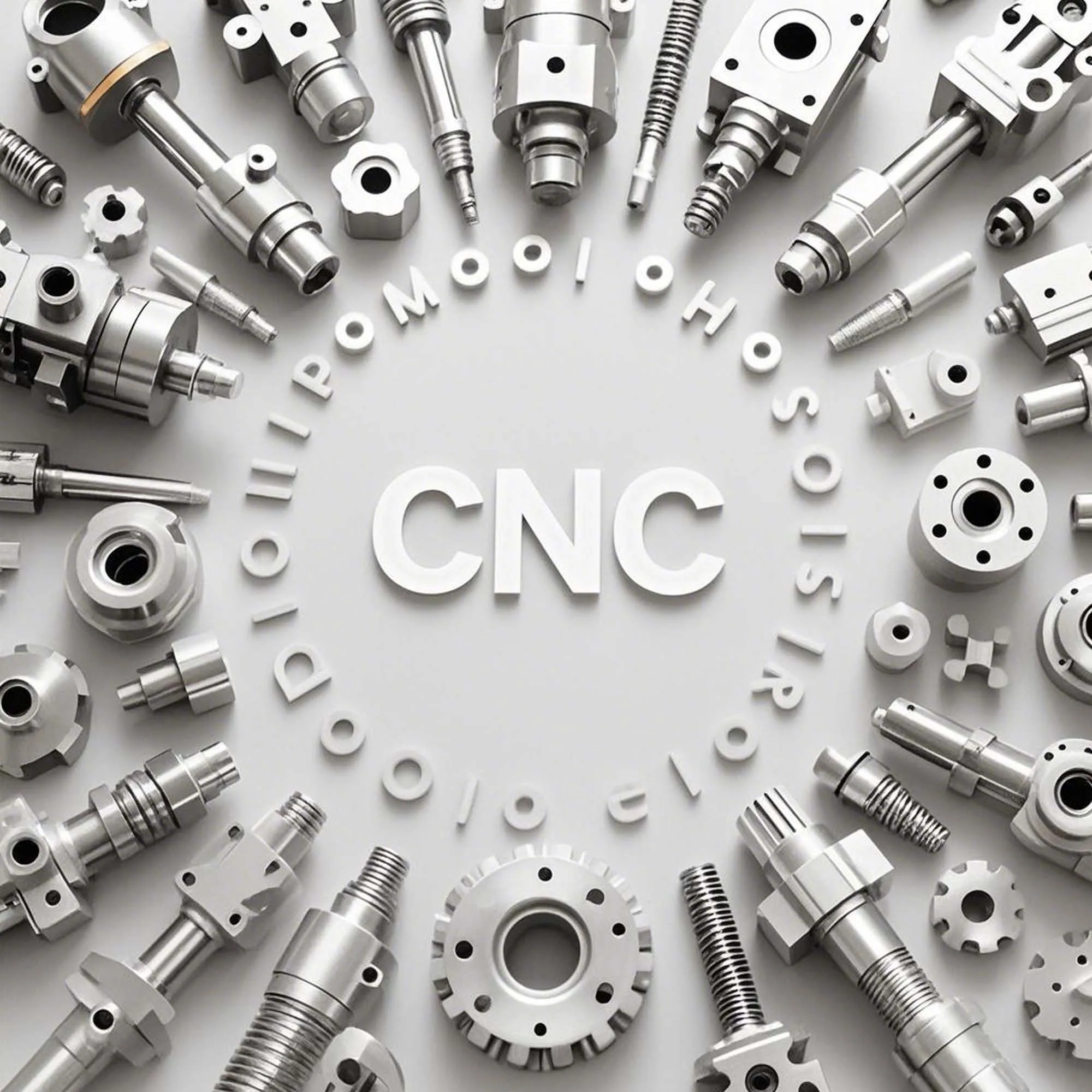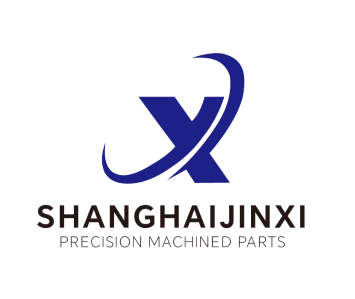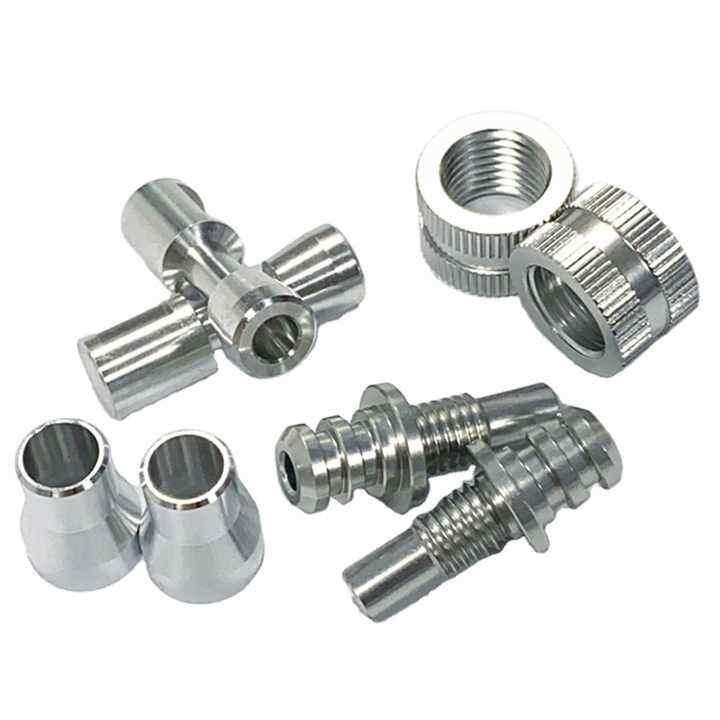In today's competitive manufacturing landscape, businesses require precise, reliable, and cost-effective solutions for prototype development. Custom cnc machining has emerged as a cornerstone technology that enables companies to transform digital designs into tangible prototypes with exceptional accuracy and efficiency. This advanced manufacturing process combines computer-controlled precision with versatile material capabilities, making it an indispensable tool for industries ranging from aerospace to medical devices.

The evolution of prototyping has been dramatically influenced by the capabilities that custom cnc machining brings to the table. Unlike traditional manufacturing methods that often require extensive tooling and setup costs, this technology offers unparalleled flexibility in producing one-off parts or small batches with minimal lead times. Engineers and designers can now iterate rapidly, testing multiple design variations without the prohibitive costs associated with conventional manufacturing approaches.
Understanding the specific advantages of custom cnc machining for prototype development is crucial for making informed decisions about manufacturing strategies. These benefits extend beyond simple cost considerations, encompassing quality assurance, design flexibility, material versatility, and time-to-market advantages that can significantly impact product development cycles and overall business competitiveness.
Superior Precision and Quality Control
Micron-Level Accuracy Standards
Modern custom cnc machining systems achieve tolerances as tight as ±0.001 inches, delivering precision that surpasses most alternative manufacturing methods. This exceptional accuracy stems from computer-controlled movements that eliminate human error and maintain consistent positioning throughout the entire machining process. For prototype development, this level of precision ensures that test parts accurately represent the final product specifications, enabling meaningful validation and testing procedures.
The repeatability inherent in cnc systems means that multiple prototype iterations maintain identical dimensional characteristics, allowing engineers to focus on design modifications rather than compensating for manufacturing variations. This consistency proves particularly valuable when conducting comparative testing or when prototype parts must interface with existing components in complex assemblies.
Advanced Surface Finish Capabilities
Surface finish quality directly impacts both the functional performance and aesthetic appeal of prototype components. Custom cnc machining offers extensive control over surface textures, from mirror-like finishes for optical components to specific roughness patterns for enhanced grip or adhesion properties. These capabilities allow prototypes to accurately simulate the surface characteristics intended for production parts.
The ability to achieve various surface finishes within a single setup reduces the need for secondary operations, streamlining the prototyping process while maintaining tight dimensional control. This integrated approach ensures that surface treatments do not compromise the precision achieved during the primary machining operations, resulting in prototypes that truly represent the intended final product quality.
Exceptional Material Versatility
Comprehensive Metal Compatibility
One of the most significant advantages of custom cnc machining lies in its ability to work with an extensive range of materials, from common aluminum alloys to exotic superalloys used in aerospace applications. This versatility enables prototype development using the exact materials intended for production, ensuring that material properties, thermal characteristics, and mechanical behaviors accurately reflect those of the final product.
Stainless steel, titanium, inconel, and various tool steels can all be machined to precise specifications, allowing engineers to evaluate material performance under realistic conditions. This capability proves particularly valuable for prototypes that must withstand specific environmental conditions or mechanical stresses, as testing can be conducted using production-grade materials rather than substitute materials that may not provide accurate performance data.
Advanced Polymer and Composite Processing
Beyond metals, modern cnc systems excel at machining engineering plastics, composites, and specialized polymers that are increasingly common in contemporary product designs. Materials such as PEEK, Delrin, carbon fiber composites, and various thermoplastics can be machined to tight tolerances, enabling prototype development for industries where weight reduction and chemical resistance are paramount concerns.
The ability to machine these advanced materials opens new possibilities for prototype testing, particularly in applications where traditional materials would be unsuitable. Custom cnc machining allows engineers to explore innovative material combinations and validate performance characteristics that would be impossible to assess using conventional prototyping methods.
Rapid Design Iteration Capabilities
Accelerated Development Cycles
The speed at which custom cnc machining can transform digital designs into physical prototypes dramatically accelerates product development timelines. Unlike processes requiring extensive tooling or mold creation, cnc machining can begin production immediately upon receipt of properly formatted CAD files, often delivering initial prototypes within days rather than weeks or months.
This rapid turnaround capability enables iterative design refinement, where multiple design variations can be evaluated in quick succession. Engineers can implement design changes, produce updated prototypes, and conduct testing cycles with minimal delays, leading to more thoroughly optimized final designs and reduced overall development costs.
Cost-Effective Small Batch Production
Traditional manufacturing methods often require significant upfront investments in tooling, making small quantities economically unfeasible. Custom cnc machining eliminates these barriers, providing cost-effective solutions for producing anywhere from single prototypes to small production runs without prohibitive setup costs or minimum order requirements.
This economic flexibility allows companies to produce exactly the number of prototypes needed for comprehensive testing and validation, avoiding the waste and expense associated with larger minimum orders. Additionally, the ability to produce small batches enables gradual scaling from prototype to production, reducing financial risk and allowing for continuous refinement throughout the development process.
Complex Geometry Manufacturing
Multi-Axis Machining Capabilities
Modern cnc systems equipped with multi-axis capabilities can produce intricate geometries that would be impossible or extremely expensive to achieve through conventional manufacturing methods. Five-axis machining centers can access complex surfaces from multiple angles in a single setup, creating prototypes with undercuts, compound curves, and internal features that accurately represent sophisticated design requirements.
This capability proves particularly valuable for prototypes requiring complex internal cooling channels, aerodynamic surfaces, or ergonomic contours where traditional manufacturing approaches would require multiple operations or assembly processes. The ability to machine these features as integral components ensures superior structural integrity and eliminates potential failure points associated with assembled parts.
Integrated Feature Manufacturing
Custom cnc machining enables the integration of multiple features within a single component, reducing assembly complexity and improving overall prototype functionality. Threaded holes, precision bores, mounting surfaces, and intricate profiles can all be machined in a single setup, ensuring perfect alignment and dimensional relationships between features.
This integrated approach not only improves prototype quality but also provides valuable insights into manufacturing feasibility for production parts. Engineers can evaluate whether complex integrated designs can be efficiently produced, or if design modifications would improve manufacturability without compromising functionality.
Quality Assurance and Documentation
Comprehensive Inspection Capabilities
Professional cnc machining facilities typically maintain sophisticated quality control systems, including coordinate measuring machines and advanced inspection equipment that can verify dimensional accuracy to micron levels. This capability ensures that prototypes meet specified tolerances and provides detailed documentation of actual versus intended dimensions.
The availability of comprehensive inspection data proves invaluable during prototype evaluation, enabling engineers to understand exactly how manufactured dimensions compare to design specifications. This information supports informed decision-making regarding design modifications and helps establish realistic tolerance requirements for production parts.
Process Documentation and Traceability
Custom cnc machining operations generate detailed process documentation, including machining parameters, tool selections, and sequence information that can be preserved for future reference. This documentation proves valuable when transitioning from prototype to production, as proven machining strategies can be replicated and scaled appropriately.
The traceability inherent in professional cnc operations also supports quality management systems and regulatory compliance requirements, particularly important in industries such as aerospace, medical devices, and automotive where documentation requirements are stringent and prototype testing data must be thoroughly documented.
FAQ
What materials can be used with custom cnc machining for prototypes
Custom cnc machining supports an extensive range of materials including aluminum, steel, stainless steel, titanium, brass, copper, various engineering plastics like PEEK and Delrin, carbon fiber composites, and many specialized alloys. The choice of material depends on the specific requirements of your prototype, including mechanical properties, environmental resistance, and intended application conditions.
How quickly can cnc machined prototypes be produced
Lead times for cnc machined prototypes typically range from 1-5 business days for simple parts to 1-2 weeks for complex geometries, depending on material availability, complexity, and shop workload. Rush services are often available for critical timeline requirements, though this may impact pricing. The ability to start production immediately upon receipt of CAD files makes cnc machining one of the fastest prototyping methods available.
What level of precision can be achieved in prototype parts
Modern cnc machining systems routinely achieve tolerances of ±0.001 inches or tighter, with some specialized applications reaching tolerances of ±0.0005 inches. Surface finishes can range from rough machined to mirror-like polished surfaces depending on requirements. This precision level ensures that prototypes accurately represent intended production part specifications for meaningful testing and validation.
How does cnc machining compare to 3D printing for prototypes
While 3D printing excels for rapid concept models and complex internal geometries, cnc machining offers superior surface finish, dimensional accuracy, and material properties that closely match production parts. Cnc machined prototypes provide better representation of final product performance, strength, and durability, making them ideal for functional testing and validation of production-intent designs.

